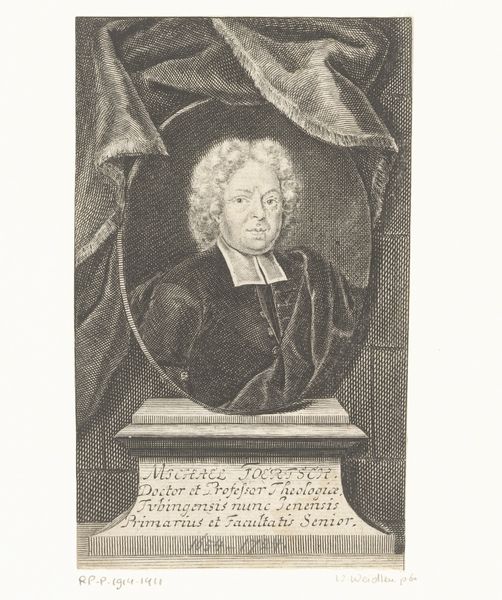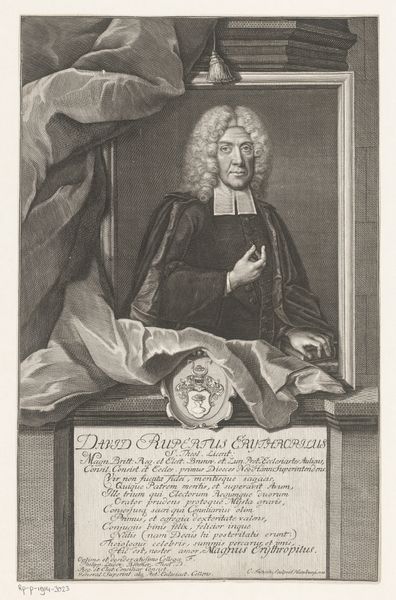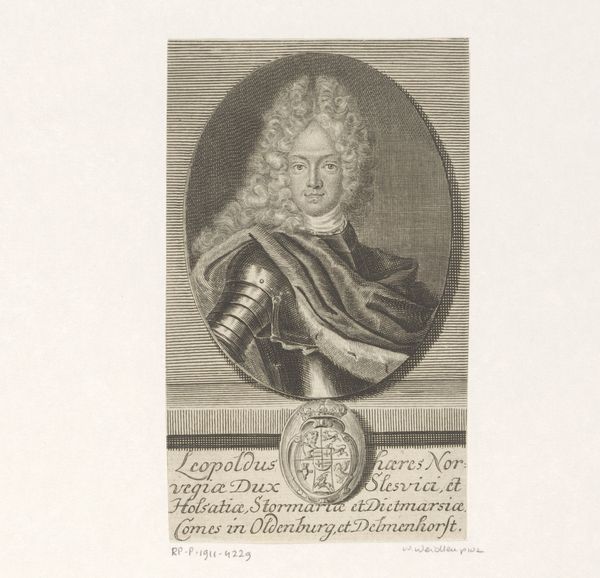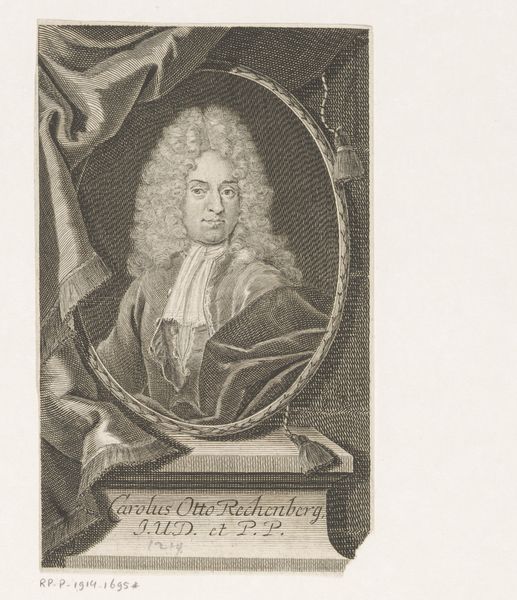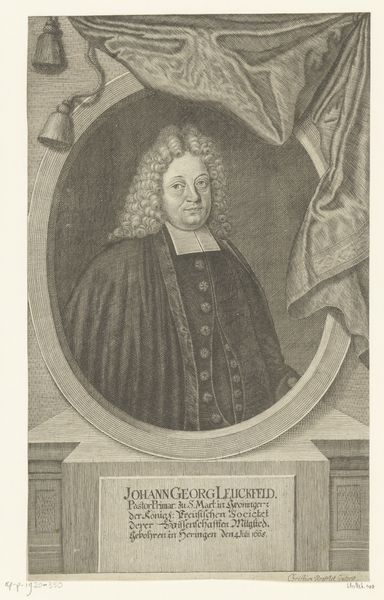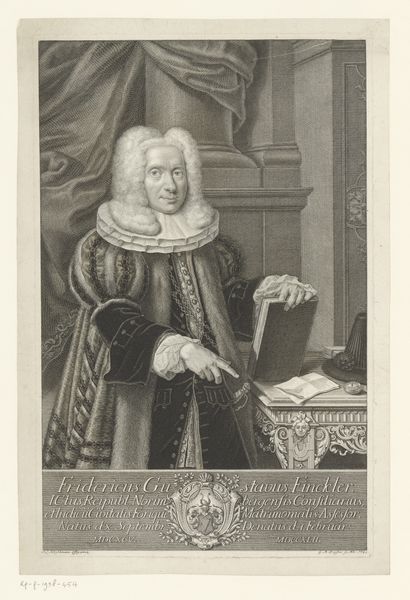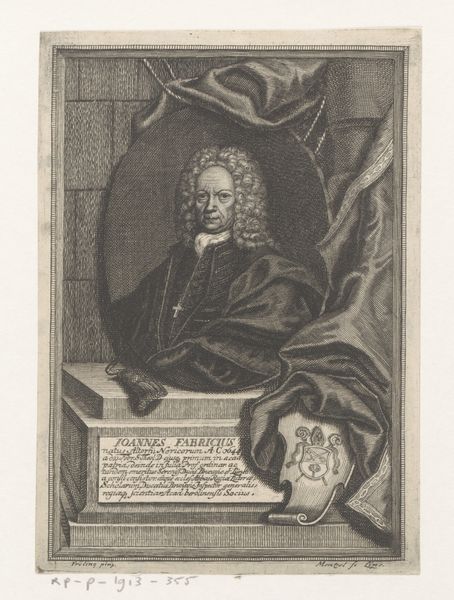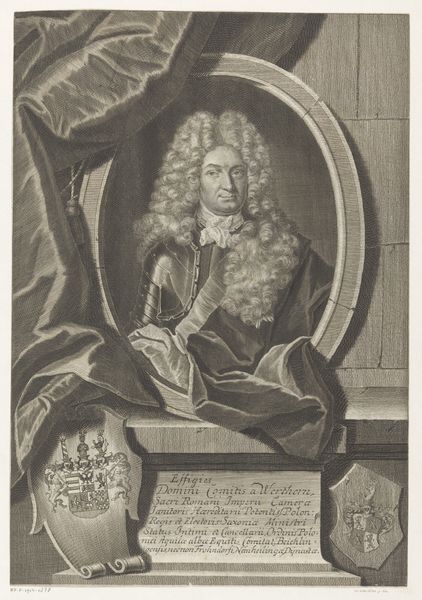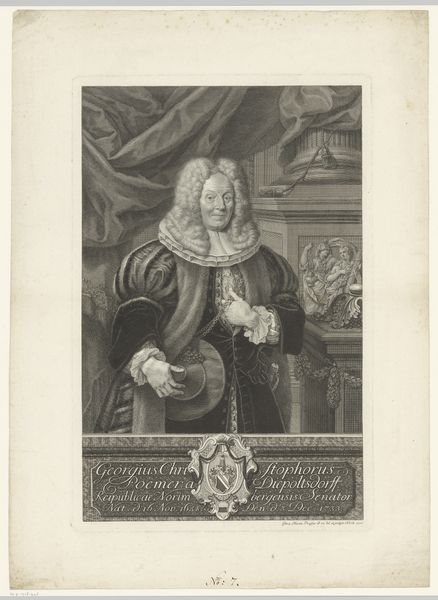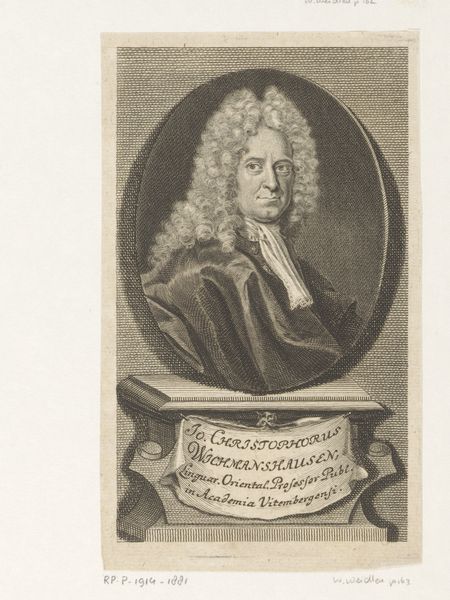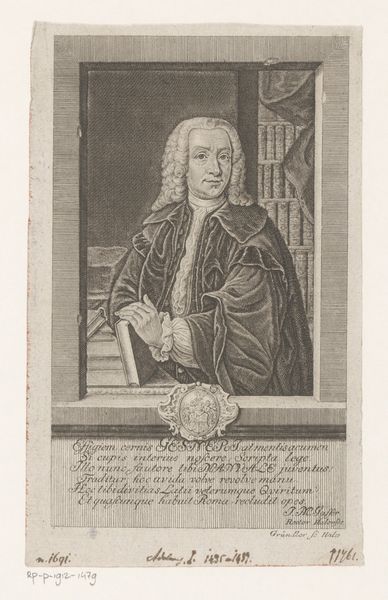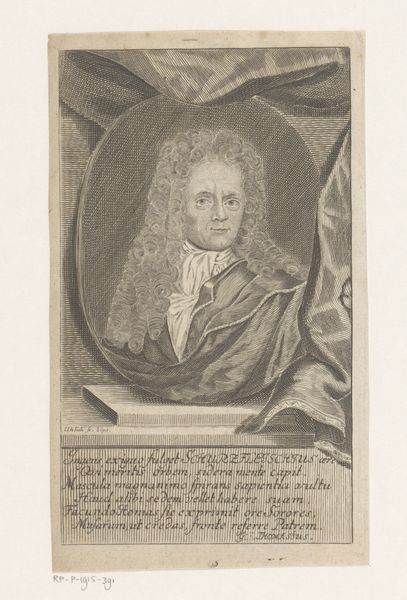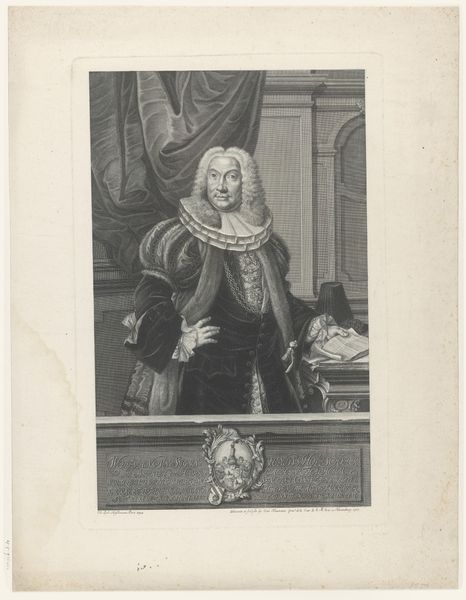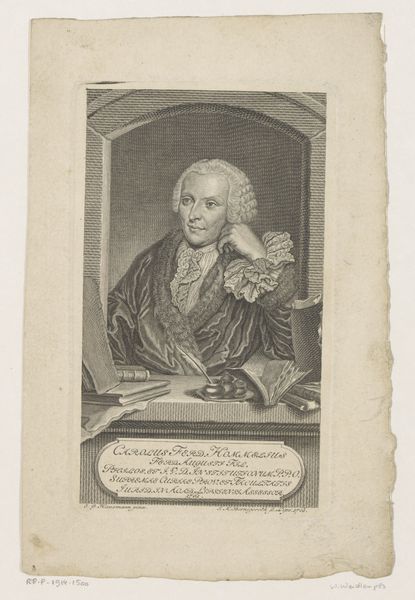
print, engraving
#
portrait
#
baroque
# print
#
old engraving style
#
line
#
history-painting
#
engraving
Dimensions: height 143 mm, width 85 mm
Copyright: Rijks Museum: Open Domain
Editor: So, this is a print from 1714 by Martin Bernigeroth titled "Portret van Hans Caspar Graf von Lesgewang." It's an engraving, giving it such fine detail. There’s almost a somber quality to the portrait, despite all the frills. What do you make of it? Curator: What strikes me immediately is how this portrait operates within the visual language of power and status in the Baroque era. It's not just a likeness; it's a carefully constructed image designed to project a particular socio-political message. Consider the inclusion of his titles, Hans Caspar Graf von Lesgewang. Why is that so important to declare so clearly? Editor: Well, it seems pretty standard for portraits of the time. It's basically showing how important the subject is. Curator: Exactly. These details are important indicators of social standing during the period. He isn't merely a man; he is positioned as someone embedded in the mechanisms of governance and courtly life, also by presenting him within the Baroque visual vocabulary, how the staging with curtains becomes a codified form to legitimize the aristocratic class through images like this. Editor: So it’s less about *him* as a person, and more about what he represents? Curator: Precisely. Think about the role prints played in disseminating such imagery. This wasn't a unique painting accessible only to a few. This was an easily reproducible image designed for circulation, to make status very visible through multiple channels. Editor: That's a great point about the medium of printmaking being a factor in understanding how art functions as a social and political tool. It makes me rethink how portraits work. Curator: Right. And how the mechanics of image production intersect with societal structures to uphold particular power dynamics. Thinking critically about the “why” and “how” really open up new layers of interpretation, right? Editor: Definitely. I’ll be paying much more attention to these social dynamics when I look at portraits from now on.
Comments
No comments
Be the first to comment and join the conversation on the ultimate creative platform.
